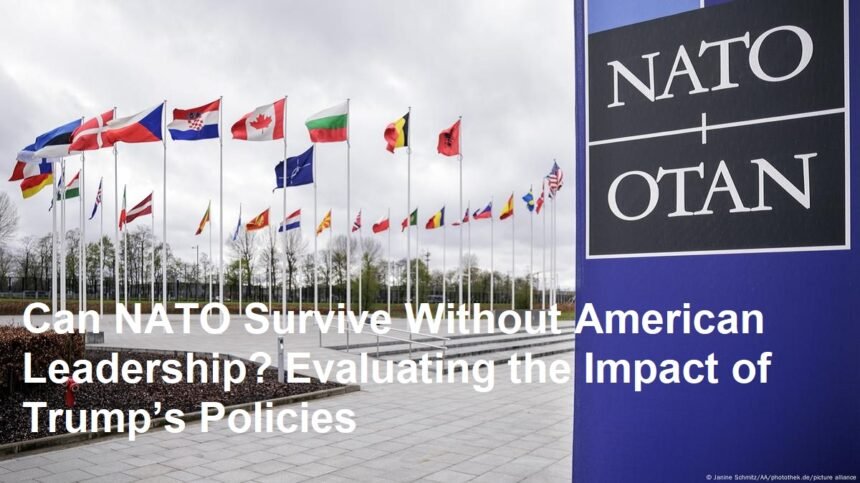NATO, established in 1949 as a bulwark against Soviet expansion during the Cold War, has long been regarded as the cornerstone of transatlantic security. The alliance has depended heavily on the military, political, and financial support of the United States. However, during Donald Trump’s presidency, a series of controversial remarks and policy shifts raised questions about America’s commitment to NATO. This article examines whether NATO could survive if the United States were to step back from its leadership role, as some critics feared might happen under Trump’s “America First” agenda.
One of the central pillars of NATO has been the U.S. military’s overwhelming capabilities. The American armed forces have provided a deterrent effect that reassured European allies and maintained stability in a region historically prone to conflict. Trump’s vocal criticisms—insisting that other members were not contributing enough financially and militarily—sparked debates about burden-sharing. Critics argued that if the United States were to reduce its involvement or even withdraw from the alliance, NATO might be left without the crucial force multiplier that had, for decades, guaranteed collective security. Without U.S. military prowess, the balance of power in the region could shift, potentially emboldening adversaries and creating security gaps.
Financial contributions are another significant factor. The United States has long been the largest funder of NATO initiatives, contributing not only through direct budget support but also by underwriting the costs of advanced technologies and strategic deployments. Trump’s administration pushed for increased defense spending from European members, which, on one hand, could lead to a more balanced financial burden. On the other hand, if the U.S. were to pull back completely, it might leave European nations scrambling to fill the gap—especially those with smaller defense budgets. Such a scenario could expose underlying fractures in the alliance’s cohesion, as members would be forced to re-evaluate their commitments and potentially seek alternative security arrangements.
Beyond military and financial issues, the political unity of NATO has always been as important as its military might. The alliance is not merely a collection of armies but a network of democracies with shared values and interests. Trump’s rhetoric sometimes seemed to prioritize unilateral American interests over the collective goals of the alliance. While his critics warned that this could weaken the bonds of trust and mutual support, others argued that the essence of NATO lay in the inherent commitment of its member states to collective defense. Even if the U.S. were to reduce its role, many European countries might be compelled to reinforce their own defense capabilities and forge stronger regional partnerships to maintain stability.
Historically, alliances have shown a remarkable ability to adapt to shifting geopolitical landscapes. NATO has already undergone several transformations—from countering Soviet power to addressing modern challenges such as cyber threats and terrorism. In the event of a diminished American role, NATO’s survival might depend on its ability to innovate and recalibrate. European nations, increasingly aware of the need for strategic autonomy, have started investing more in their defense industries and forging bilateral agreements. Such moves could serve as a foundation for a reimagined NATO that is less dependent on any single member.
In conclusion, while the potential reduction of American involvement in NATO—exemplified by some of Trump’s policies—poses serious challenges, the alliance’s future is not necessarily doomed. Its survival may hinge on the ability of European allies to step up financially, militarily, and politically. NATO’s enduring strength lies in its shared commitment to collective defense and democratic values, which could enable it to adapt to a new era of security challenges. Ultimately, whether NATO can thrive without American leadership will depend on the resilience and willingness of its members to embrace change and work together toward a secure and stable future.
Can NATO Survive Without American Leadership? Evaluating the Impact of Trump’s Policies

Leave a comment
Leave a comment










